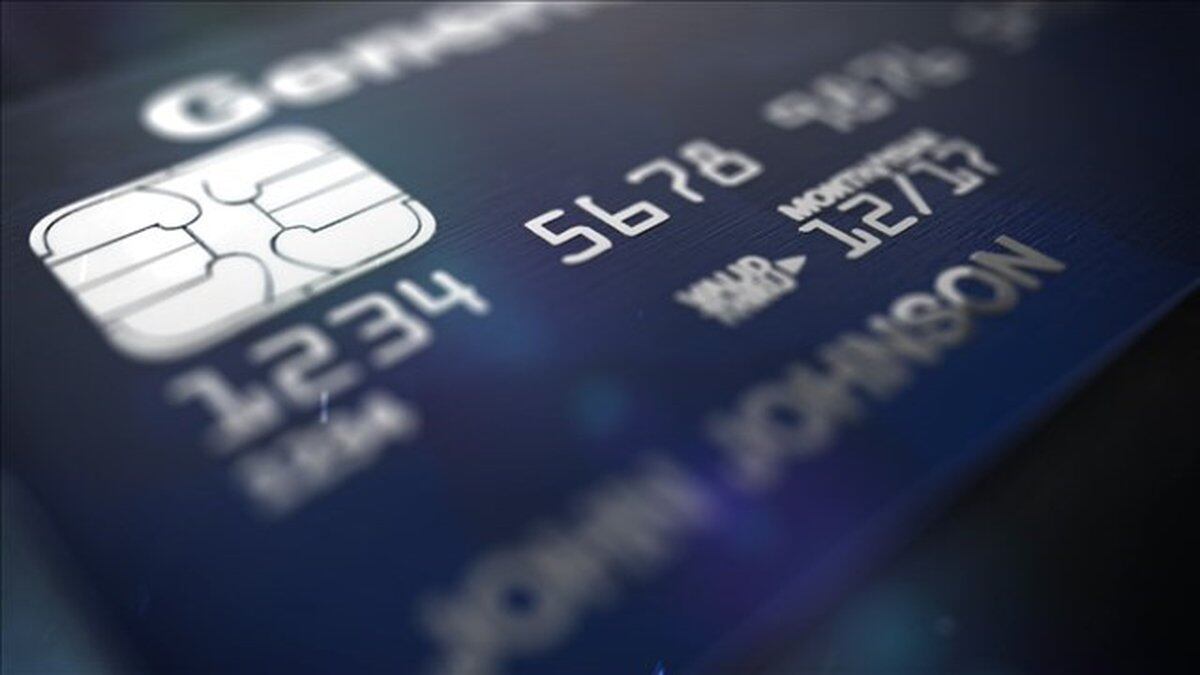

Finance
How To Get Out Of Late Fee On Credit Card
Published: February 22, 2024
Learn how to avoid late fees on your credit card and manage your finances effectively with our expert tips and guidance. Take control of your finances today!
(Many of the links in this article redirect to a specific reviewed product. Your purchase of these products through affiliate links helps to generate commission for LiveWell, at no extra cost. Learn more)
Table of Contents
Introduction
Managing credit card payments responsibly is crucial for maintaining a healthy financial profile. However, there are instances when unforeseen circumstances can lead to missing a credit card payment, resulting in late fees and potential negative impacts on credit scores. In this article, we will delve into the intricacies of late fees on credit cards, provide practical tips for avoiding them, and outline steps to rectify the situation if you find yourself facing these fees.
It’s important to recognize that late fees are not only an inconvenience but can also have lasting repercussions. By understanding the implications of late payments and learning how to navigate them effectively, individuals can safeguard their financial well-being and maintain a positive credit history.
Whether you’re a seasoned credit card user or new to the world of personal finance, the information presented here will empower you to handle late fees on credit cards with confidence and competence. Let’s embark on this journey to unravel the complexities of late fees and discover actionable strategies to mitigate their impact on your financial health.
Understanding Late Fees on Credit Cards
Late fees on credit cards are charges imposed when the minimum payment due is not received by the specified deadline. These fees can vary depending on the credit card issuer and the outstanding balance. It’s important to note that late fees are not only a financial burden but can also trigger other adverse consequences, such as increased interest rates and negative effects on credit scores.
Typically, credit card companies assess late fees when payments are not received by the due date or within the grace period, which is usually a few days after the due date. The amount of the late fee is often outlined in the cardholder agreement and can range from a fixed sum to a percentage of the overdue payment.
Furthermore, late payments can result in the activation of penalty interest rates, causing the overall debt to escalate rapidly. This can significantly impact the cardholder’s financial stability and make it more challenging to pay off the outstanding balance. Additionally, late payments may be reported to credit bureaus, potentially lowering the individual’s credit score and diminishing their creditworthiness.
Understanding the implications of late fees on credit cards is pivotal in comprehending the importance of timely payments. By recognizing the potential ramifications of late payments, individuals can proactively strategize to prevent these fees and mitigate their adverse effects on their financial standing.
Tips for Avoiding Late Fees
Avoiding late fees on credit cards necessitates a proactive approach and conscientious financial management. Here are some practical tips to help you steer clear of late payments and their associated fees:
- Set Up Payment Reminders: Leverage technology by setting up payment reminders through your credit card issuer’s online portal or mobile app. Additionally, you can utilize calendar alerts or personal finance apps to receive notifications about upcoming payment due dates.
- Automate Minimum Payments: Consider automating the minimum payment from your bank account to ensure that at least the minimum amount due is paid on time each month. This can serve as a safety net, especially during hectic periods when payment deadlines might slip your mind.
- Monitor Your Billing Cycle: Familiarize yourself with your credit card billing cycle and due dates. By staying informed about these timelines, you can plan your expenditures and allocate funds for timely payments.
- Create a Buffer: Aim to make payments well in advance of the due date to account for potential processing delays. Building a buffer ensures that unforeseen circumstances, such as technical glitches or bank processing times, do not result in late fees.
- Utilize Payment Alerts: Many credit card issuers offer payment alert services that notify cardholders when a payment is due. Take advantage of these alerts to stay informed and prompt in your payment activities.
- Opt for Electronic Statements: Opting for electronic statements can expedite the delivery of billing information, allowing you to review and address any discrepancies or issues promptly.
- Review and Confirm Payments: After initiating a payment, verify that it has been processed successfully. This simple yet crucial step can prevent oversights and ensure that payments are credited on time.
By implementing these strategies and integrating them into your financial routine, you can minimize the risk of incurring late fees on your credit cards and maintain a solid payment track record.
Steps to Get Out of Late Fees on Credit Card
Addressing late fees on a credit card requires a proactive and strategic approach. If you find yourself facing late fees, consider the following steps to rectify the situation and alleviate the financial burden:
- Contact the Credit Card Issuer: Upon realizing that a late payment has been incurred, promptly reach out to your credit card issuer. Explain the circumstances that led to the late payment and inquire about the possibility of waiving the late fee. Demonstrating accountability and a commitment to timely payments can bolster your case for fee removal.
- Highlight Your Payment History: If you have a history of timely payments and this late fee is an anomaly, emphasize this track record to the credit card issuer. Providing evidence of consistent payment behavior can strengthen your request for late fee forgiveness.
- Negotiate a Resolution: Engage in a constructive dialogue with the credit card issuer to negotiate a resolution. Express your willingness to settle the overdue amount promptly and explore options for mitigating the impact of the late fee, such as adjusting the payment due date or restructuring the payment plan.
- Utilize Goodwill Gestures: Some credit card issuers may extend goodwill gestures to loyal and responsible cardholders. Politely appeal to the issuer’s goodwill and cite your positive history with the company as grounds for reconsidering the late fee.
- Enroll in Auto-Pay or Payment Reminders: To prevent future occurrences of late payments, consider enrolling in auto-pay services or setting up payment reminders. Demonstrating your commitment to avoiding late payments can bolster your case for fee waivers and showcase your proactive approach to financial management.
- Monitor Your Credit Report: After resolving the late payment issue, monitor your credit report to ensure that the late fee and any associated negative remarks are accurately updated. Timely rectification of any adverse notations can help safeguard your credit standing.
By taking these proactive steps and engaging with your credit card issuer in a constructive and responsible manner, you can navigate the process of addressing late fees and work towards mitigating their impact on your financial well-being.
Conclusion
Navigating late fees on credit cards demands a blend of vigilance, responsibility, and effective communication with credit card issuers. By understanding the implications of late payments, implementing proactive strategies to avoid late fees, and addressing late fees with a structured approach, individuals can safeguard their financial health and maintain a positive credit history.
It is essential to recognize that late fees are not merely financial penalties but can also trigger a cascade of adverse effects, including increased interest rates and potential damage to credit scores. Therefore, prioritizing timely payments and developing a comprehensive understanding of the associated processes and repercussions is paramount.
Moreover, in the event of incurring late fees, promptly engaging with credit card issuers, highlighting your payment history, and negotiating a resolution can pave the way for fee waivers and constructive outcomes. Demonstrating a proactive commitment to avoiding future late payments through the utilization of automated payment methods and ongoing monitoring of credit reports further fortifies one’s financial resilience.
By integrating the insights and strategies outlined in this article into your financial practices, you can navigate the complexities of late fees on credit cards with confidence and efficacy. Ultimately, fostering a proactive and responsible approach to credit card management empowers individuals to mitigate the impact of late fees and uphold a solid foundation for their financial well-being.
With a comprehensive understanding of late fees and a proactive mindset, individuals can navigate the intricacies of credit card payments and cultivate a resilient financial outlook that aligns with their long-term goals and aspirations.














